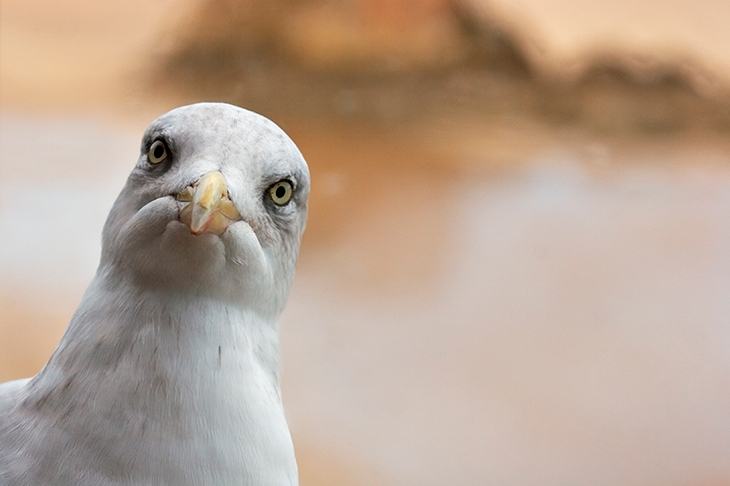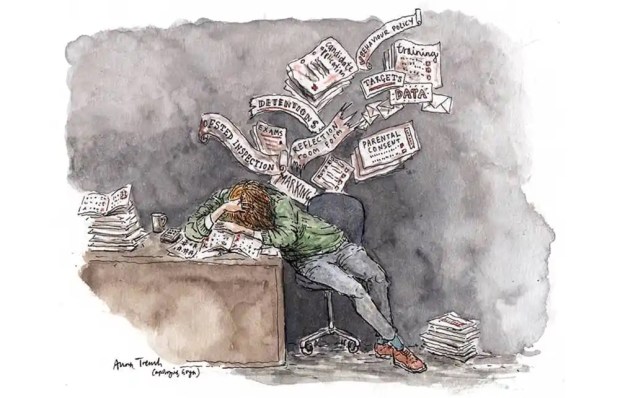China’s covered
Sir: If Charles Moore had contacted the BBC, rather than conducting a fruitless Google search, we would have told him we run three China bureaux — in Beijing, Shanghai and Hong Kong — and that our three mainland correspondents are backed up by production and administrative staff locally. In Hong Kong, we have a team for the BBC’s online Chinese language service.
We would have outlined our agenda-setting, and award-winning, reporting on the Uighurs over the last two years, as well as other major issues such as Covid and the situation in Hong Kong. We would have highlighted our BBC2 three-part series on President Xi. And we would have pointed out the audience growth for our Chinese language service, despite our site being officially blocked in China. None of this bears out his assertion that the BBC has ‘given up’ reporting China.
It will also come as a surprise to the BBC’s Persian service, which recently revealed an official cover-up of Covid deaths in Iran, that the BBC’s reporting of that country is ‘timid’. BBC Persian journalists, whose work regularly features on British bulletins, face a sustained campaign of intimidation from the Iranian government, yet they continue to break stories such as this.
Jonathan Munro
Head of BBC Newsgathering, London W1A
BBC blind spot
Sir: Charles Moore has a point about the paucity of the BBC’s China coverage (Spectator Notes, 12 September). To have so few correspondents in a country of its size and importance is a missed opportunity. American TV coverage is slanted and we often turn to BBC World for a different view, but China is its great blind spot. To learn about fish, you go to the water. To know and report on China, you need a decent-sized staff in the mainland. At a time of global sabre-rattling, the need to understand modern China has never been greater. Hopefully the BBC will appoint a China editor soon: the job has never been more important.
Paul Chow
California
Safe hands
Sir: James Bloodworth’s review of Head Hand Heart by David Goodhart struck a chord with me (Books, 12 September). Having worked for many years as a self-employed roofer, I am used to eyebrows being raised when I say that I am a reader of The Spectator and the Daily Telegraph. Most of those who are surprised will of course be university-educated and will also have noticed — to paraphrase Goodhart — that when the lockdown came into force, electricity, gas and water continued to flow, the sewers functioned, buses kept running and society did not crumble. No one seemed to miss the HR department. In extremis, the hordes of middle management will not save us. To quote Matthew Crawford from his book The Case for Working with Your Hands: ‘Any work that can be done “down a wire” from a country with cheap labour costs will be done, but you can’t hammer a nail over the internet.’
Guy Bargery
Edinburgh
Bad form
Sir: I do not know if Andrew Watts is employed by a newspaper or magazine, but I suspect not. In his article (‘La petite mort’, 5 September) he refers to ‘a phrase that is only ever used by subeditors trying to make things more depraved’. I have been a newspaper and magazine sub for more than 30 years; I have never — and I doubt if any of my colleagues have — inserted a phrase into copy ‘to make things more depraved’. That is not what subs do; we correct grammar, check facts, write headlines and captions, cut copy, upload articles to the website, tidy up loose sentences and rewrite where necessary. I, for instance, would have deleted Mr Watts’s ‘ever’ and moved ‘only’ to between ‘used’ and ‘by subeditors’, possibly while hurling a copy of Fowler’s Dictionary of Modern English Usage across the room.
Prudence Hone
London NW10
Flock off
Sir: Tim Newark states ‘seagulls don’t deserve to be protected’, and claims councils can no longer control gulls (‘Cull the gull’, 12 September). He correctly clarifies there has been a 60 per cent decline in herring gull numbers in natural nesting coastal populations. However, there is nothing to substantiate the author’s view that gull population increases in his reported locations are representative of England generally. Newark also comments that census data has been used to ‘radically shift the law so that councils and residents can now do very little about the soaring populations in their communities’. To clarify, there has been no ban on gull control in urban areas, and there is no cap on urban gulls controlled under licence numbers — only a requirement for councils to establish a plan for managing gulls’ impacts. Like all birds, gulls are protected by law, and these plans must show that lethal control is necessary. There are many measures that local authorities can take to discourage gulls, including clearing litter and emptying public bins. We will be ensuring that applicants for gull licences next year have all the required information.
Dave Slater
Director for wildlife licensing and enforcement cases, Natural England, York
Dream ticket
Sir: I couldn’t agree more with Fiona Mountford about her love for paper tickets (‘Stubbed out’, 12 September). My own collection lives in an old shoe box — every ticket telling its own story. I hope my daughters give them a passing glance en route to the recycling when I am gone, and muse: why did Dad see David Essex at the Gaumont Theatre Ipswich on 19 August 1988? Girls, it was to accompany my sister, who was in love with him. She announced that she was gay shortly thereafter.
Matthew Hunnybun
York
Got something to add? Join the discussion and comment below.
Get 10 issues for just $10
Subscribe to The Spectator Australia today for the next 10 magazine issues, plus full online access, for just $10.
You might disagree with half of it, but you’ll enjoy reading all of it. Try your first month for free, then just $2 a week for the remainder of your first year.














Comments
Don't miss out
Join the conversation with other Spectator Australia readers. Subscribe to leave a comment.
SUBSCRIBEAlready a subscriber? Log in